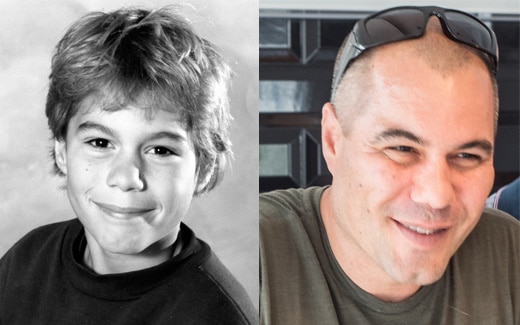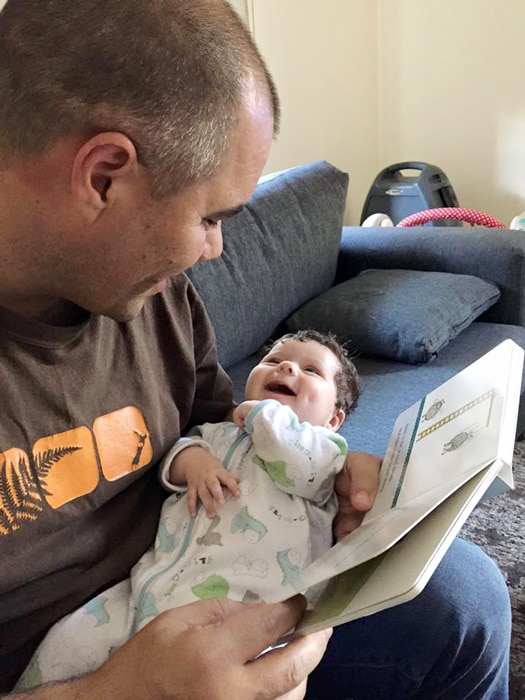What Really Made the Difference
As a child back in the 1980s, Bryce McGowan came to SPELD for help. Now in his 40s and working as an environmental engineer in Melbourne, Bryce looks back on what really made the difference.
In about Standard 1, I went to SPELD because I was way behind the rest of my class in handwriting, spelling and times-tables. SPELD did not make me brilliant in anything I was taught. I still have trouble with my times-tables and spelling even though I work with numbers and large reports every day. But SPELD did teach me I wasn’t dumb, rather I had different skills to other people. SPELD opened my eyes to visual and tactile learning techniques – at the time they were just something that worked better than anything else. In retrospect, I think even though jumping around a clock didn’t teach me the times-tables (I don’t think anything would have), it let me know with the right stuff to learn I could learn stuff.

Bryce back in the 1980s and now
Despite having a very poor memory, at the age of 17, I went to live in Bolivia so the necessity of learning the vocabulary and a whole new grammar system. I drove myself to frustration. However, immersing myself in the language and allowing learning by osmosis (i.e. trying to live rather than learn), I found I learnt almost as quickly as my counterparts. I am now fluent in Spanish. I know about as many Spanish grammatical rules as English which is stuff all. However, just like English, I intuitively know if something is wrong.
I am still famous amongst my friends for not being able to remember things (I once lived in a flat for almost a year before I memorised by own phone number). However in growing up I recognised my limitations. I knew I couldn’t be an author or a lawyer. But I am an engineer and not knowing my times-tables did not stop me from passing advanced modelling papers(4th year uni maths). It also hasn’t stopped me from producing large reports which know I have to get proofed or I have to get the computer to read them to me where I can hear the punctuation problems.
I guess SPELD wasn’t a miracle cure but it did give me some useful tools for life and you always have to remember that many typical early schooling problems such as poor spelling, handwriting and times-tables simply indicate poor memory, not inability to learn. In today’s environment, while this makes things a little more difficult, it doesn’t stop them from doing well academically.

Bryce with his baby daughter Hannah.





